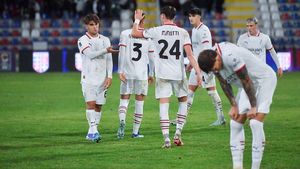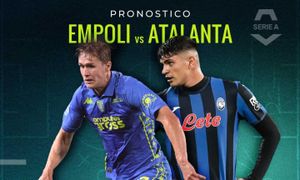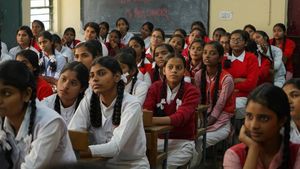Ivan Basso, the two-time Giro d'Italia champion, has undergone significant transformations throughout his life, reflecting on both his past experiences and present circumstances. Recently, in an interview with the Corriere della Sera, he opened up candidly about his storied career, his struggles with doping, and the subsequent changes he made after overcoming personal and professional crises.
Basso began his cycling career riding a red tricycle, which, as he recalls, became his refuge during challenging times at home. "I began with a red tricycle, I became a child prodigy. I lived 30 years submerged," he states, reflecting on how his early successes kept familial tensions at bay. He recalls, "When I won, my parents wouldn’t fight for days. So, I raced faster and harder." This backdrop of familial strife fueled his ambition to excel.
The Italian cyclist first gained national recognition with his victories, including the prestigious Giro d'Italia, first clinching the title in 2006. His triumphs, though, were overshadowed by the dark clouds of doping allegations. Basso admits to trying to dope during the 2006 season, stating, "Like almost everyone at the time, I was not educated on the ethics of winning and losing; I had no ethics. I only thought of winning." His confession of attempting blood transfusions for performance enhancement led to a lengthy suspension from the sport.
Upon reflecting on his choices, Basso realizes the depth of his misjudgment. "For thirty years I raced without breathing, blind and deaf: I saw no mountains, I heard no cheers, I only thought of winning," he admits, highlighting the isolation he experienced as he pursued victory at the cost of his values and well-being. The wake-up call came not only from the doping scandal but also after he was diagnosed with cancer following a devastating fall during the Tour de France.
After his retirement, Basso embarked on a path of redemption. Medical tests revealed cancer, which he battled bravely, allowing for significant reevaluation of his life choices. It was through this ordeal, along with pivotal conversations with his wife, Micaela, who has been his steady support, where he began to recognize the impact of his past decisions. "I have to thank my wife for helping me rediscover my priorities,” Basso reflects. “I realized I was trapped, focusing too much on success and neglecting my role as husband and father.”
The couple currently runs a blueberry farm together, allowing Basso to connect with the simpler pleasures of life away from the pressures of cycling. He found peace and joy, stating, "I understood the importance of family and the need to forge genuine connections. My life had been on autopilot for so long, and it took significant moments to wake me up."
During the interview, he expressed remorse for his past actions but also acknowledged the complex environment of competitive cycling at the time. While discussing his experience with doping, he noted, "I recognized my mistakes, and I am ashamed of my actions. There are underlying motivations for what I did. I didn't know any other way to win."
Basso’s insights extend beyond his personal reflections; he is now committed to fostering ethics and integrity within the sport. He manages the Team Polti VisitMalta and emphasizes the importance of instilling ethical principles within his riders. "Today, ethics is the first thing I look for in my riders," Basso affirms, showing his commitment to shaping the future of cycling and steering it away from the dark legacy he once inhabited.
He also touched upon his relationship with fellow cyclist Lance Armstrong. Basso remains respectful of Armstrong, noting, "Lance for me is the man who, having survived cancer, sent a doctor to Italy at his own expense to try to treat my mother. I leave it to others to judge his wrongdoings."
Reflecting on the highs and lows of his career, Basso has emerged not just as a champion cyclist, but as someone who has found redemption through reflection, acceptance, and recommitment to his family, cycling philosophy, and integrity. This evolution from being caught amid scandals and health crises to becoming a mentor for future generations marks his true victory.
Through Basso’s story, current and future athletes can glean invaluable lessons on the importance of ethics, family relationships, and the significance of maintaining integrity both inside and outside of sport.



